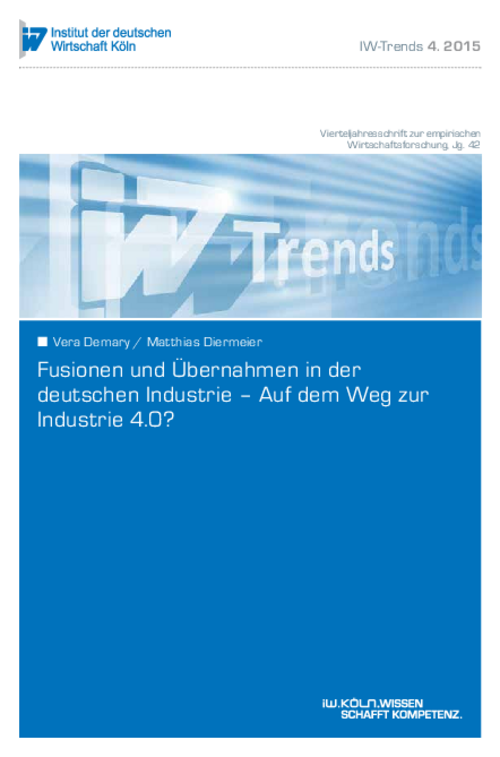Heading for Industry 4.0?

Mergers and Acquisitions in German Industry
IW-Trends

Heading for Industry 4.0?
The merging of companies contributes enormously to the dynamics of the corporate landscape and is normally coupled to the business cycle. Since the financial crisis of 2009, however, mergers and acquisitions involving German companies have become uncoupled from the state of the economy. This is particularly surprising due to the prevailing weakness of investment in Germany and may be partly explained by the high prices put on companies. Additionally, in the German economy as a whole there is a perceptible trend towards diversifying by merging with firms in other sectors. By contrast, the data for the most important industries suggest that in recent years companies have preferred to consolidate, with comparatively few mergers with, or acquisitions of, companies outside the sector. In view of this, the hypothesis that manufacturing firms are increasingly acquiring the knowledge necessary for the development and implementation of industry 4.0 applications by merging with, or taking over, IT companies cannot be confirmed. Rather, the IT sector is itself going through a period of consolidation.

Vera Demary / Matthias Diermeier: Fusionen und Übernahmen in der deutschen Industrie
IW-Trends

More on the topic
The anti‑steering provision of Article 5 (4) of the DMA: a law and economics assessment on the business model of gatekeepers and business users
Data is a success factor for digital platforms and the core of their business model. The rationale behind this is that data allows for improving the matching process between users which creates value for the platform.
IW
Industrial policy at the turn of the times
The current debate on industrial policy vacillates between the extreme positions of an orthodoxy of rejecting state action and a naive belief in the state's ability to control structural change.
IW